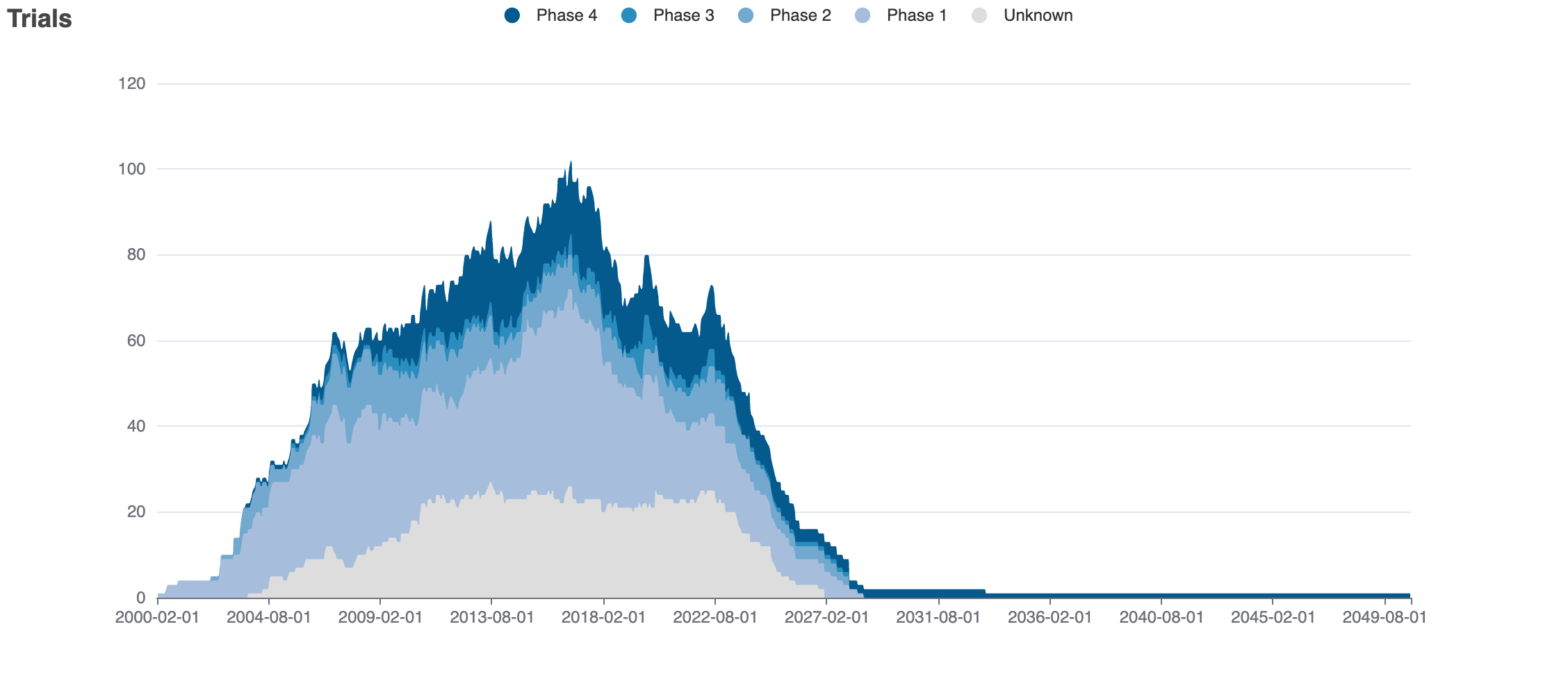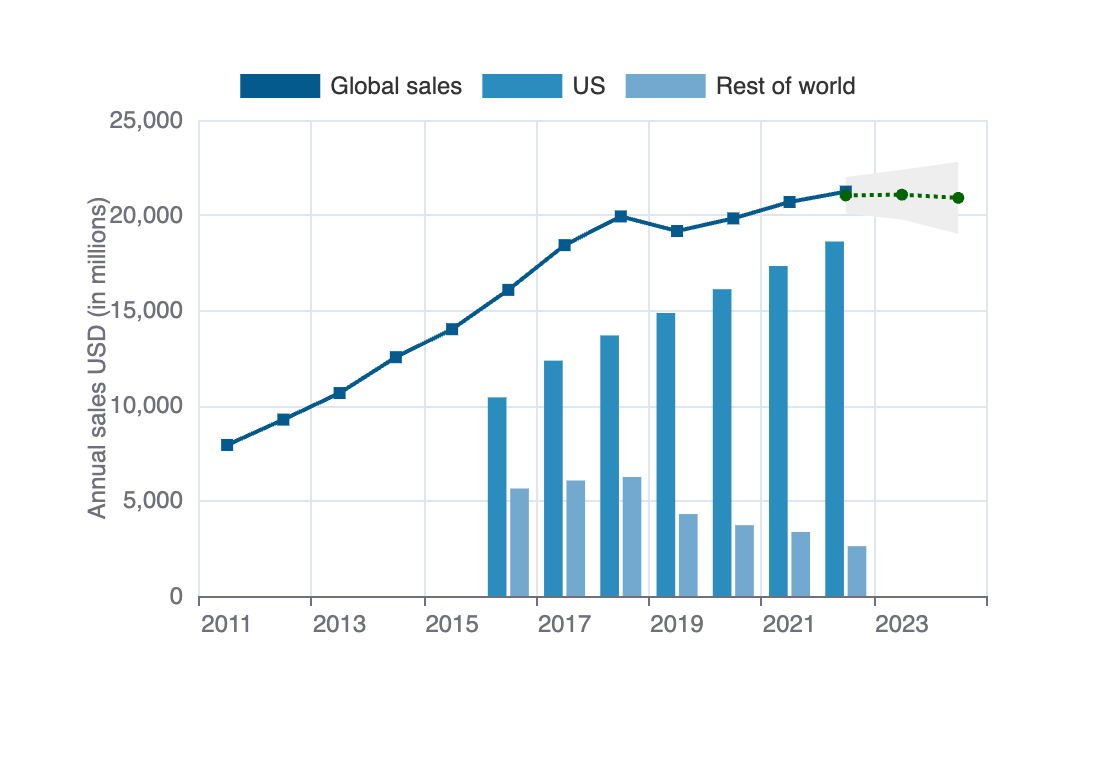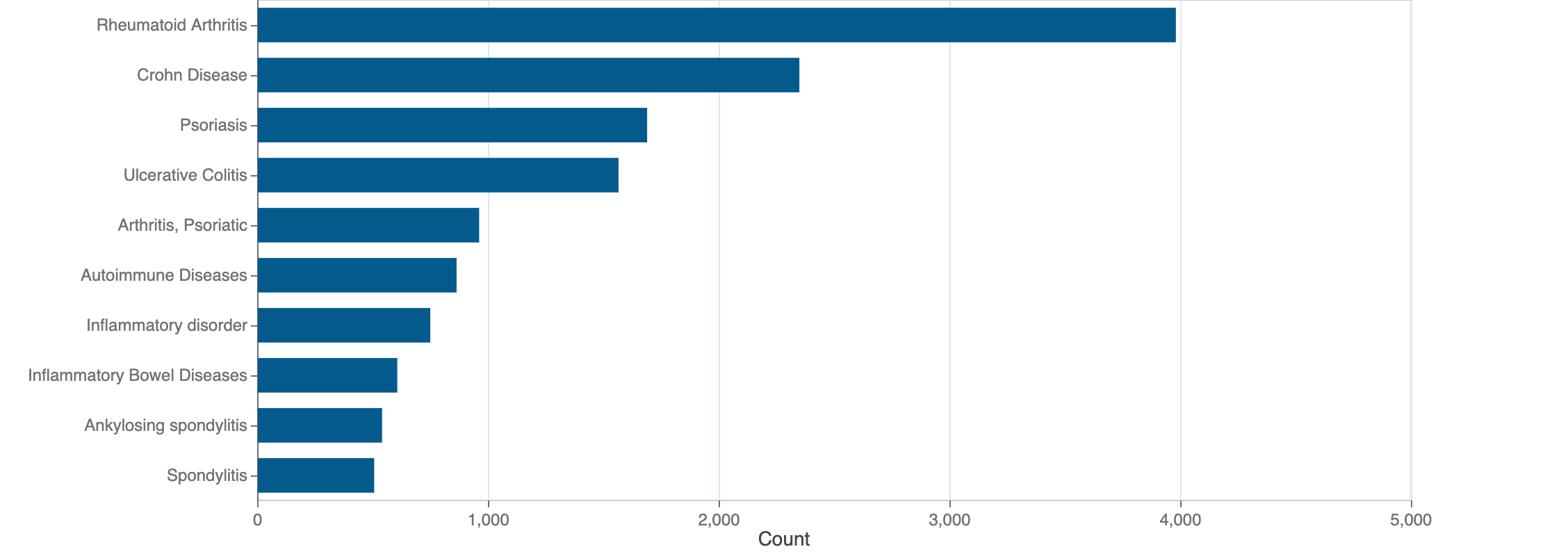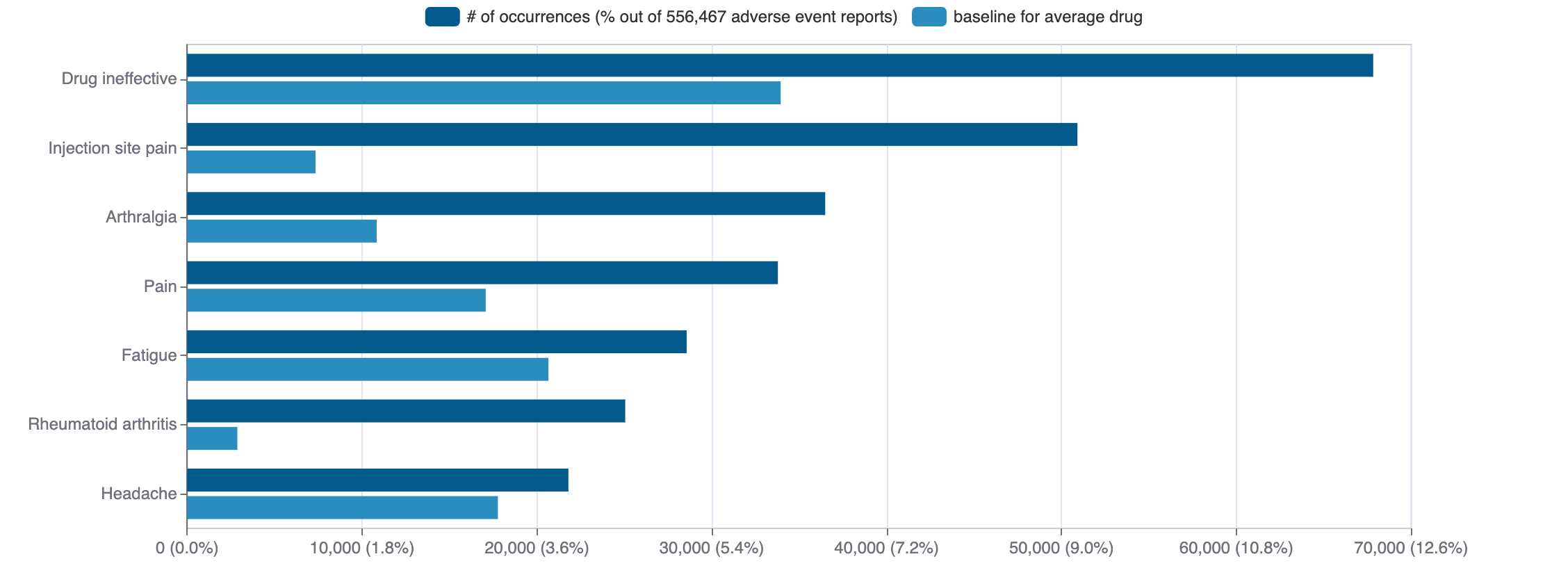Yescarta(axicabtagene ciloleucel)
Yescarta (axicabtagene ciloleucel) is a gene pharmaceutical. Axicabtagene ciloleucel was first approved as Yescarta on 2017-10-18. It has been approved in Europe to treat follicular lymphoma and large b-cell lymphoma diffuse.
Download report
Favorite
Events Timeline
Commercial
Clinical
Drug
Target
Variants
Financial
Trends
Safety
Events Timeline
5D
1M
3M
6M
YTD
1Y
2Y
5Y
Max
Events
FDA approval date
EMA approval date
Patent expiration date
Study first post date
Last update post date
Start date
Primary completion date
Completion date
Results first post date

Mock data
Subscribe for the real data
Subscribe for the real data
Commercial
Therapeutic Areas
Therapeutic Area | MeSH |
|---|---|
| neoplasms | D009369 |
| hemic and lymphatic diseases | D006425 |
| immune system diseases | D007154 |
Trade Name
FDA
EMA
Yescarta
Drug Products
FDA
EMA
Reference product - 351(a)
Reference product - 351(a)
Interchangeable product - 351(k)
Interchangeable product - 351(k)
Biosimilar product - 351(k)
Biosimilar product - 351(k)
Axicabtagene ciloleucel
Tradename | Proper name | Company | Number | Date | Products |
|---|---|---|---|---|---|
| Yescarta | axicabtagene ciloleucel | Gilead Sciences | A-125643 RX | 2017-10-18 | 1 products |
Labels
FDA
EMA
Brand Name | Status | Last Update |
|---|---|---|
| yescarta | Biologic Licensing Application | 2026-02-12 |
Indications
FDA
EMA
No data
Agency Specific
FDA
EMA
Expiration | Code | ||
|---|---|---|---|
axicabtagene ciloleucel, Yescarta, Kite Pharma Inc. | |||
| 2029-04-01 | Orphan excl. | ||
Patent Expiration
No data
HCPCS
Code | Description |
|---|---|
| Q2041 | Axicabtagene ciloleucel, up to 200 million autologous anti-cd19 car positive viable t cells, including leukapheresis and dose preparation procedures, per therapeutic dose |
Clinical
Clinical Trials
55 clinical trials
View more details

Mock data
Subscribe for the real data
Subscribe for the real data
Indications Phases 4
Indication | MeSH | Ontology | ICD-10 | Ph 1 | Ph 2 | Ph 3 | Ph 4 | Other | Total |
|---|---|---|---|---|---|---|---|---|---|
| B-cell lymphoma | D016393 | — | — | 4 | 7 | — | 1 | 2 | 12 |
| Lymphoma | D008223 | — | C85.9 | 5 | 6 | — | 1 | 1 | 11 |
| Large b-cell lymphoma diffuse | D016403 | — | C83.3 | 2 | 3 | 1 | 1 | 1 | 6 |
Indications Phases 3
Indication | MeSH | Ontology | ICD-10 | Ph 1 | Ph 2 | Ph 3 | Ph 4 | Other | Total |
|---|---|---|---|---|---|---|---|---|---|
| Follicular lymphoma | D008224 | — | C82 | — | 1 | 1 | — | 1 | 3 |
Indications Phases 2
Indication | MeSH | Ontology | ICD-10 | Ph 1 | Ph 2 | Ph 3 | Ph 4 | Other | Total |
|---|---|---|---|---|---|---|---|---|---|
| Non-hodgkin lymphoma | D008228 | — | C85.9 | 1 | 3 | — | — | — | 3 |
| Recurrence | D012008 | — | — | — | 2 | — | — | — | 2 |
| Cytokine release syndrome | D000080424 | — | D89.83 | — | 1 | — | — | — | 1 |
| Neurotoxicity syndromes | D020258 | — | G92 | — | 1 | — | — | — | 1 |
| B-cell lymphoma marginal zone | D018442 | — | C88.4 | — | 1 | — | — | — | 1 |
| Mantle-cell lymphoma | D020522 | — | C83.1 | — | 1 | — | — | — | 1 |
Indications Phases 1
No data
Indications Without Phase
Indication | MeSH | Ontology | ICD-10 | Ph 1 | Ph 2 | Ph 3 | Ph 4 | Other | Total |
|---|---|---|---|---|---|---|---|---|---|
| Hematologic neoplasms | D019337 | — | — | — | — | — | — | 1 | 1 |
Epidemiology
Epidemiological information for investigational and approved indications
View more details
Drug
General
| Drug common name | Axicabtagene ciloleucel |
| INN | axicabtagene ciloleucel |
| Description | Axicabtagene ciloleucel, sold under the brand name Yescarta, is a medication used for the treatment for large B-cell lymphoma that has failed conventional treatment. T cells are removed from a person with lymphoma and genetically engineered to produce a specific T-cell receptor. The resulting chimeric antigen receptor T cells (CAR-Ts) that react to the cancer are then given back to the person to populate the bone marrow. Axicabtagene treatment carries a risk for cytokine release syndrome (CRS) and neurological toxicities.
|
| Classification | Gene |
| Drug class | — |
| Image (chem structure or protein) |  |
| Structure (InChI/SMILES or Protein Sequence) | — |
Identifiers
| PDB | — |
| CAS-ID | — |
| RxCUI | 1987398 |
| ChEMBL ID | CHEMBL3989989 |
| ChEBI ID | — |
| PubChem CID | — |
| DrugBank | DB13915 |
| UNII ID | U2I8T43Y7R (ChemIDplus, GSRS) |
Target
No data
Variants
No data
Financial
Revenue by drug
$
€
£
₣
Yescarta – Gilead Sciences


Mock data
Subscribe for the real data
Subscribe for the real data

Mock data
Subscribe for the real data
Subscribe for the real data
Tabular view
Estimated US medical usage
No data
Trends
PubMed Central
Top Terms for Disease or Syndrome:

Mock data
Subscribe for the real data
Subscribe for the real data
Additional graphs summarizing 1,949 documents
View more details
Safety
Black-box Warning
Black-box warning for: Yescarta
Adverse Events
Top Adverse Reactions

Mock data
Subscribe for the real data
Subscribe for the real data
8,293 adverse events reported
View more details
© 2020-2025 Collaborative Drug Discovery Inc. (CDD) | Terms of Use